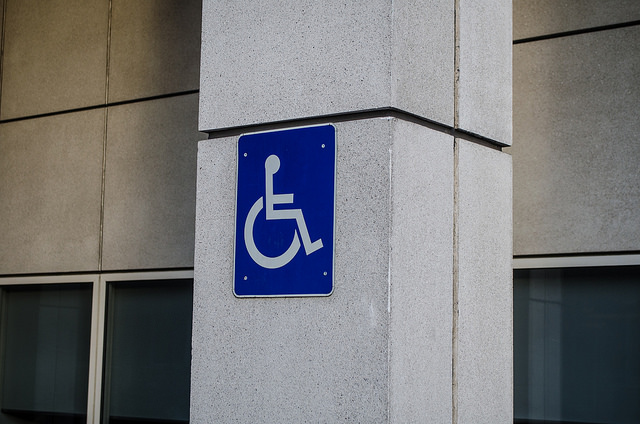A student’s first year in university generally consists of a combination of settling in, understanding what’s required of them and blowing off some steam. As a wheelchair user, my first year at Trinity was a difficult but rewarding experience. Academically, I enjoyed it immensely as, in many cases, my course made me challenge my beliefs and open my mind to new ways of thinking. However, my first year in Trinity also brought with it many challenges.
While my lecturers couldn’t have been more accommodating of my disability – which in my case is cerebral palsy – other aspects of college life proved to be troublesome. Although College places a significant focus on its disability services, basic amenities such as wheelchair accessible toilets are often out of order. The lack of this basic service leaves me in a very uncomfortable situation until such a time where I can find a suitable toilet. In many cases, wheelchair users have to circumnavigate the college in order to find a working toilet and this inconvenience impacts negatively on their day.
The union is supposed to represent all students across campus, but how can it do this when a certain section of Trinity’s population can’t even get into its building to voice their concerns and have their opinions represented?
Thankfully, these occurrences are becoming less and less frequent. Trinity’s Disability Service deserves much credit for the admirable job it does in accommodating students with a variety of disabilities. Nonetheless, more needs to be done not only to support the Disability Service, but also by the Disability Service itself to increase awareness of the challenges faced by physically disabled people on campus.
For example, I like so many physically disabled students in Trinity cannot get into the interior of House Six, the students’ union building and the home of many Trinity societies. House Six is the beating heart of student political life. The fact that it is inaccessible to some students is totally unacceptable. The union is supposed to represent all students across campus, but how can it do this when a certain section of Trinity’s population can’t even get into its building to voice their concerns and have their opinions represented?
In addition, these injustices wouldn’t annoy me as much if, at the same time, Trinity College Dublin Students’ Union (TCDSU) and The University Times weren’t trying to push for social change within wider Irish society over the discrimination faced by many within its own walls. Like most of the media and political elite, these groups are indulging in “pick and mix” advocacy, extolling the virtues of some minority groups while ignoring others. As a result, groups like those with a disability continue to languish in the darkness unrecognised by those in positions of power.
My first year in Trinity has opened my eyes to the need of placing the fulfilment and prosperity of every human being at the centre of any institution. Disability services are only one area where we currently fall short of this ideal
This focus on national issues by TCDSU, rather than issues directly related to Trinity students, is something that the union should receive a greater level criticism for. Although its involvement in national campaigns is noble, a union should first and foremost look to represent the immediate concerns of those it represents. When students do not have basic access to certain parts of a university and their union is not doing enough about it, or publicising anything that they might be doing to the people that it affects, then something is wrong. Anyone looking to hold such positions in the future should take this lack of focus on issues that directly affect Trinity students into consideration.
Despite these far-too-common instances of injustices that affect not just Trinity students, but sadly the whole of Irish society, I remain hopeful for the future. My first year in Trinity has opened my eyes to the need of placing the fulfilment and prosperity of every human being at the centre of any institution. Disability services are only one area where we currently fall short of this ideal, however. Placing greater focus on them would certainly make my life, and the life of many others, a lot easier.







